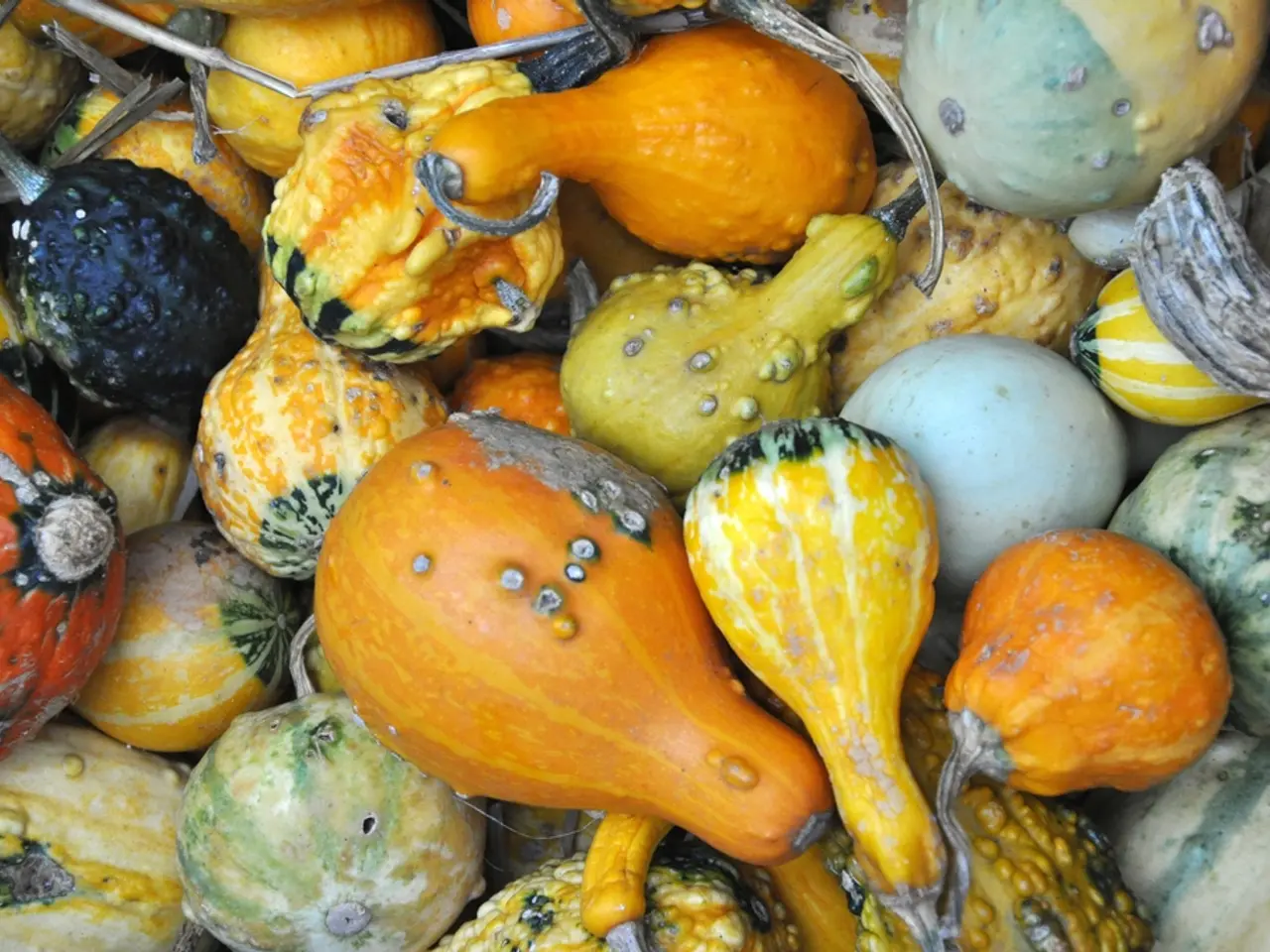Impact of the intensity of sensory attributes, emotional responses, and non-sensory variables on the intention to buy mixed-vegetable juice items during a supervised tasting session
In a recent study, researchers explored the factors that influence consumer purchase intent for vegetable juice products. The study, which involved 69 adults, found that the combination of sensory attribute intensities, non-sensory factors, and emotional responses significantly impacts consumer purchase intent.
Sensory attributes, such as taste, flavor intensity, aroma, and texture, directly affect liking and emotional responses. Strong sensory liking correlates with a greater intention to purchase, as taste and product attributes remain primary factors in consumer decisions for health-related beverages like vegetable juice.
Non-sensory factors include health perceptions, information about benefits (e.g., nutritional, environmental), price, labeling (e.g., sugar content), and attitudes toward healthiness. Favorable attitudes toward health and product benefits increase consumers’ positive evaluation and willingness to buy products that align with their health goals.
Emotional responses derived from sensory experiences create affective connections that reinforce consumer preferences and increase purchase intent. Emotional satisfaction from sensory experience often acts synergistically with cognitive factors such as health beliefs.
The study found that products with higher ratings of purchase intent elicited lower levels of negative emotions and higher levels of positive emotions. This was measured using a self-reported emotion questionnaire and facial expression analysis.
Brand liking (a non-sensory factor) was found to significantly impact the purchase-related behavior of vegetable juice products. The five samples used in the study differed significantly with respect to sensory attribute intensities, non-sensory factors, and emotional responses.
The study concluded that non-sensory factors in combination with sensory attributes and emotions can influence consumer purchase intent and consumer choice in vegetable juice products. Marketing efforts should therefore integrate sensory quality improvements with clear communication of health and environmental benefits to maximize consumer acceptance.
Providing detailed product information (e.g., health benefits, sustainability) enhances purchase intent by positively affecting non-sensory perceptions and emotional engagement, complementing the sensory experience of the product.
In summary, for vegetable juice products, an optimal mix of appealing sensory intensities (taste, aroma), positive non-sensory factors (health perceptions, labeling), and favorable emotional responses (pleasantness, satisfaction) creates the strongest purchase intent among consumers. Under informed tasting conditions, emotional responses were found to influence consumer purchase intent toward vegetable juice products.
- The taste, aroma, and texture of a health-related beverage like vegetable juice significantly influence consumer preference and emotional satisfaction, ultimately driving purchasing intention.
- Positive non-sensory perceptions, such as health benefits and environmental sustainability, along with favorable attitudes towards health and wellness, increase consumers' willingness to buy products that align with their health goals.
- A combination of appealing sensory attributes, positive emotional responses, and informed understanding of the product's health and environmental benefits can create the strongest consumer purchase intent for vegetable juice products, suggesting the need for comprehensive marketing strategies that address multiple aspects of consumer decision-making.




